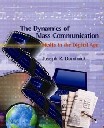1. ISPs a. Internet service providers (ISPs) connect personal computers to the Internet. What options do you have for ISPs in your town? Compare the costs and features of each. b. What can the national ISPs (e.g. ATT, AOL, and Prodigy) do that the local ones cannot? 2. Broadband The leading broadband systems today include digital subscriber line (DSL) and cable modems. DSL is delivered by the phone company and cable modems are from the cable company. Compare the cost and speed of broadband (cable modems, digital subscriber line, satellite) to dial-up access. If you do not have broadband access in your area, look for it in another town. 3. E-Commerce: B2B and B2C Internet commerce (online sales) has been considered an important income source for Internet firms. Despite recent setbacks, e-commerce is still considered important. There are two main forms of e-commerce: business-to-business (B2B) and business-to-consumers (B2C). Find an example of each type of business. 4. Play a Game The real power of the Internet is its capacity for interactivity. The fun side of interactivity is gaming. Go to a game site like Pogo.com, or zone.msn.com. You may need to install another plug-in. Enjoy a game or two. How did your experience differ from offline gaming (e.g., on Sega, Playstation, or CD-ROM)? If you had access, would you do this on a normal basis? Would you pay for it? | 


 2002 McGraw-Hill Higher Education
2002 McGraw-Hill Higher Education